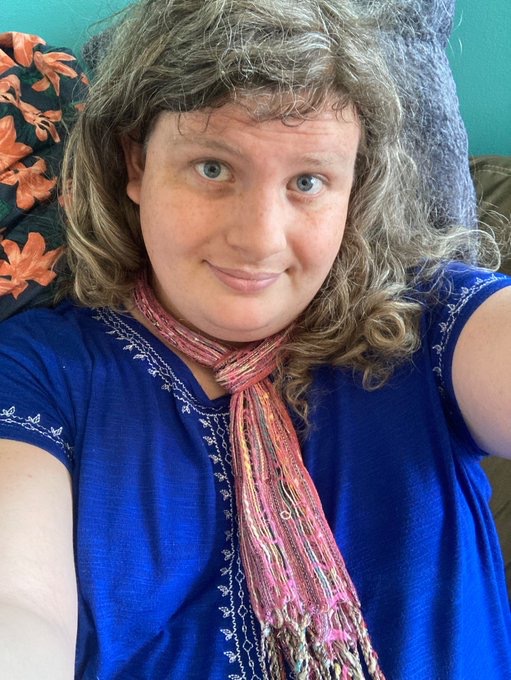A Brief Q&A with Author Lillie Franks
Franks's story, "The Prophet," appears in the Winter 2022 collection of Online Exclusives.
WTR: One of the great things about fiction is that it can utilize unreal elements to access very real, at times very urgent subject matter. In “The Prophet,” the character Ruth’s ability to not only see possible futures, but to allow others a glimpse of these futures as well, reads like a response to the deep, deep uncertainty of the present. Can you tell us how you were first drawn to writing about prophecy, and how the character of Ruth first took shape?
LF: I write stories about ideas that feel important to me but that I don’t understand fully. When I first started this story, all I really had was the idea of a character who was a prophet and I wanted to use the story to examine what that meant to me. I think I was partly interested because of the ways that trans people, and queer people in general, are simultaneously understood as individuals exploring in a purely individual manner and as signs of some kind of societal change. That brought to mind the idea of the prophet: someone who is profoundly different than most people in a society but who also speaks for some transformation in those same people. The idea of possibility became a way to fit that idea of large-scale change in with individual self-expression. Queer and trans people, like prophets, reveal possibilities and possibility can change everything.
WTR: The story can be read as a reclamation of uncertainty from fear. To achieve this, you introduce us to Ruth through Ava, the story’s narrator. What went into deciding that this story was about Ruth, while not necessarily being Ruth’s story?
LF: That’s something that I think is very fundamental to prophets. They’re able to affect other people’s stories. In a way, they are part of other people’s stories. A prophet who no one listens to is just a hermit. It’s by other people transforming and taking meaning from the prophet that they grow. This is also something I connect to transness and queerness. You have to learn to see yourself as part of other people’s stories; even the name “queer” expresses that. You can only be queer when there’s a normal that doesn’t include you. Ultimately, Ruth could only be a prophet through Ava and in her eyes, so I had to write from the point of view of Ava.
WTR: The story ends beautifully, in a burst of energy. Was there a precise feeling you wanted the reader to exit the story with? At what point in the process did you arrive at this ending, and did it change at all over the course of writing the story?
LF: I knew pretty early I wanted the ending to be a vision, and to be a vision that was something like that. The details of Ruth leaving changed a lot, but that was also there from the beginning, from the story of Jonah, which was on my mind in writing this a lot. If there’s one thing that I really want people to think about, it’s possibility, and the beauty of possibility. We often tend to try to limit possibility down to a few small decisions we can make with confidence. But possibility is always waiting for us. We can always go beyond those fake rules that we’ve set for ourselves. And we as individuals are overwhelmed by possibility, but as communities who support each other, I think we can face it. The territory one person can’t explore many people absolutely can. And I think learning to love the challenge of possibility is one of the most important things anyone can do.
__________________________________________________________________________________________________________________________________________________________________________
__________________________________________________________________________________________________________________________________________________________________________
__________________________________________________________________________________________________________________________________________________________________________
__________________________________________________________________________________________________________________________________________________________________________
__________________________________________________________________________________________________________________________________________________________________________
©2022 West Trade Review
Stay Connected to Our Literary Community. Subscribe to Our Newsletter
Lillie E. Franks is a trans author and teacher who lives in Chicago, Illinois, with the best cats. You can read her work at places like Always Crashing, Poemeleon, and Drunk Monkeys or follow her on Twitter at @onyxaminedlife. She loves anything that is not the way it should be.



